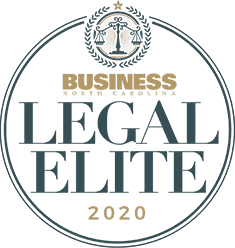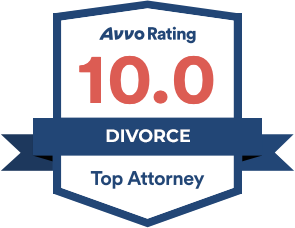
Charlotte Civil No-Contact Order (50C) Attorneys
Guiding Clients Through Civil No-Contact Orders in North Carolina
Need to issue a civil no-contact order in North Carolina? If you are the victim of stalking, abuse, or non-consensual sexual conduct from someone you do not have a personal relationship with, you can ask the Court to issue a civil no-contact order (also commonly known as a “50C order”) to prevent your abuser from having any further contact with you. This differs from domestic violence protective orders (DVPO/50B) in which the alleged offender has a personal relationship with the victim, such as a former or current romantic partner or spouse. North Carolina law defines abuse as physically or mentally harming, harassing, intimidating, or interfering with the personal liberty of another.
The person you wish to cease contact with may try to fight the order and the Court will likely inquire into the nature of their harassment. The Charlotte no-contact order lawyers of Miller Cushing Holladay can help you build a solid case to ensure the person in question is issued their no-contact order.
What Is Considered Abuse & Stalking in North Carolina?
In 2004, the North Carolina General Assembly enacted a Chapter in the North Carolina General Statutes that provided remedies to victims of stalking, abuse, or non-consensual sexual conduct.
In North Carolina, abuse is defined by law as:
- Harming someone physically or mentally
- Continued harassment of a person
- Threats and intimidation
- Interfering with one’s personal liberty
You may also issue a no-contact order if you feel that you are being stalked. As stalking does not necessarily involve direct contact, the legal definition for stalking is slightly different than that of abuse.
North Carolina considers someone’s behavior stalking when:
- The victim fears for their own safety of the safety of their loved ones
- The victim has experienced emotional distress as a result of the stalker’s actions
- The stalker has engaged in unlawful acts such as non-consensual sexual conduct
You have a right to feel safe. Having someone infringe upon your personal space or threatening you should be met with legal action as soon as possible so that they understand how serious this is.
What Does a No-Contact Order Do?
Once you have filed for a no-contact order, the summons will be served to the opposing party. This summons will be delivered by the local sheriff. If the person you wish to cease contact with does not know your address, you are entitled to omit your address from all documents for your protection.
If the opposing party does not respond to the summons request then the no-contact order may be enacted by default. Once the order takes effect, the opposing party will no longer be able to contact you in person, by phone, or in writing. They must also refrain from entering your property, school, place of employment, or other places you frequently visit on a predictable schedule.
If these terms are violated then the no-contact order will be given “permanent” status, which lasts for a full year and may be extended as needed. If the opposing party knowingly violates the order, a motion for contempt can be filed and against them and they could be subject to jail time.
Our Charlotte Family Law lawyers would be happy to discuss your case in detail. Call Miller Cushings Holladay at tel:+19803215590 or contact us online to get started with a consultation.
-
“Bethany was encouraging of questions and seems very knowledgeable”
– Jeremy Q. -
“Chris Miller and Brett Holladay were remarkable in their approach, plan and execution in my divorce case”
– Anupam P -
“I appreciate all he did to help”
– Elka J. -
“They were responsive to all of our concerns and really seemed to care about getting us the outcome that we wanted”
– Miranda M. -
“The ethics, personal client attention, and diligent client representation are well known within the local legal community.”
– Jenny H.
Contact Our Firm
Call 980-321-5590 or Fill Out this Form to Begin Your Case







